via: audreyhepburncomplex
Source: shescoastal
…fixed like a galaxy and memorized in her secret and fragile skies. Leonard Cohen



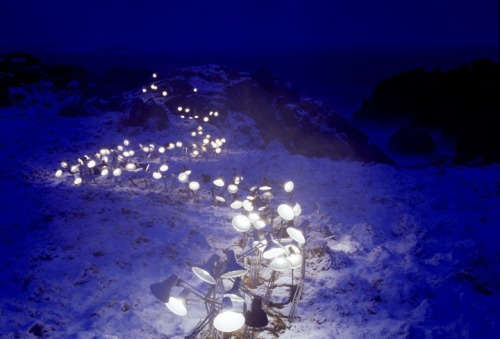
| — | Gerald Murnane, Inland (via invisiblestories) | image: mianoti: Rune Guneriussen |
| — | The Idiot by Fyodor Dostoyevsky |

Series: I see angels every day
One summer day of July 2001, I walked into the building of San Lázaro Psychiatric Hospital. This colonial building was made in 1751 as a house for poor, homeless, sick, mental illness, leprosy patients, and abandoned children. I was told its name, San Lázaro, came from Lázaro, who was a leprosy helper in the Bible. After changes of many years, it is now a three-story massive building standing on a steep hillside of the old colonial section of Quito, Ecuador. I heard about this hospital while I was working on another project in Ecuador, and since then something had been urging me to photograph there. I finally asked Trinidad, my good friend in Ecuador, to take me to the hospital. With its aged high white walls, I somehow imagined inside to be a bit of chaos, like the last scene of the movie “Amadeus”. But when I went inside, the first thing I saw was a courtyard, simple and peaceful with a fountain in the middle, and there were several people standing quietly. I wondered if they were patients. Mostly, I was surprised at the calmness. We went upstairs to the women’s section and entered a large room with evenly spaced beds lined up on both sides, and there were many patients. Some are walking around, and some are sitting on beds, while others are sleeping. As we walked by, a woman started to walk side by side with us. I see her eyes full of excitement and curiosity. She follows us around to the outside of the room and started to talk. She kept talking without stop and complained about her toothache every 5 minutes. When we were finally about to leave her, she said, “Do you see the angels? Have you seen the angels?” and she declared, “I see angels every day.”
Crime Without Passion (The Furies), 1934. Dir. Slavko Vorkapich.
| — | Paul Éluard (via invisiblestories, aperfectcommotion) |
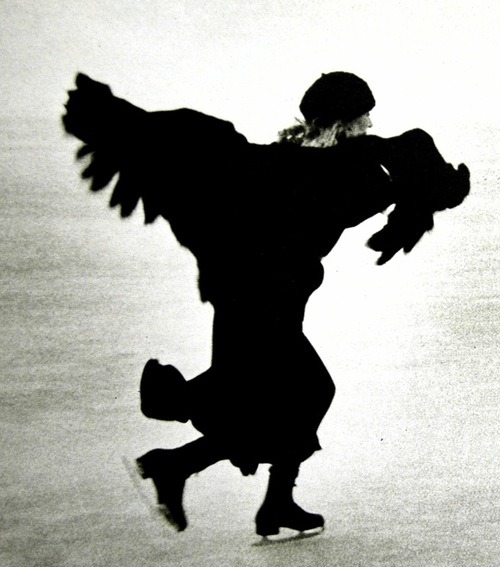
Joni Mitchell, 1976
Photo by Joel Bernstein
Photoshoot by Thea Curtis
My understanding of the fundamental laws of the universe, said Albert Einstein, did not come out of my rational mind.mianoti:
(Source: catherinewillis reblogged mianoti: crashinglybeautiful + victoriazendo)
Image: Philippe Petit
via invisiblestories
 Los Carpinteros, Untitled, 2009, Watercolor on paper, 29 3⁄4 x 44 inches, The Collection of Diane and Bruce Halle
Los Carpinteros, Untitled, 2009, Watercolor on paper, 29 3⁄4 x 44 inches, The Collection of Diane and Bruce Halle

| via: | catherinewillis: — | Saint Augustine (tnx chrbutler) | image: here |

| via: — | |

But not to turn toward Eurydice would be no less untrue. Not to look would be infidelity to the measureless, imprudent force of his [Orpheus’] movement, which does not want Eurydice in her daytime truth and her everyday appeal, but wants her in her nocturnal obscurity, her distance, with her closed body and sealed face—wants to see her not when she is visible, but when she is invisible, and not as the intimacy of an familiar life, but as the foreignness of what excludes all intimacy, and wants, not to make her live, but to have living in her the plenitude of her death…
text: invisiblestories:
image: memorybook
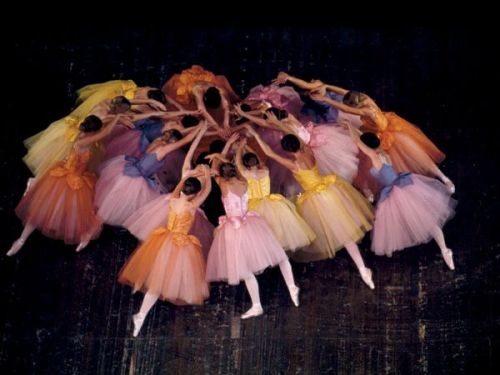
| — | Saul Bellow, Herzog | (via aperfectcommotion)crashinglybeautiful |
| text— | Fahrenheit 451, Ray Bradbury (via fuckyeahliteraryquotes) |
La fille de l’eau, Jean Renoir, 1924.


| "This is the outfit I wore when I realized I didn't need you anymore." Susan Ann Dallas, Pennsylvania USA | |||||||||
| |||||||||
 By the time you’ve read this sentence three people have been born into the world.
By the time you’ve read this sentence three people have been born into the world. “His methods of production are certainly of our time: statistics, data collection and analysis, computer programming. Yet he is dependent on craft as well: drawing, doodling, cutting and folding. Concepts are revealed and emerge through his interrogation, until they are utterly logical and clear. They are also inspiring, leading the viewer to a fresh understanding of an art that can be constructed from typography, opening onto a beautiful aesthetic composed of text as image.”
“His methods of production are certainly of our time: statistics, data collection and analysis, computer programming. Yet he is dependent on craft as well: drawing, doodling, cutting and folding. Concepts are revealed and emerge through his interrogation, until they are utterly logical and clear. They are also inspiring, leading the viewer to a fresh understanding of an art that can be constructed from typography, opening onto a beautiful aesthetic composed of text as image.”


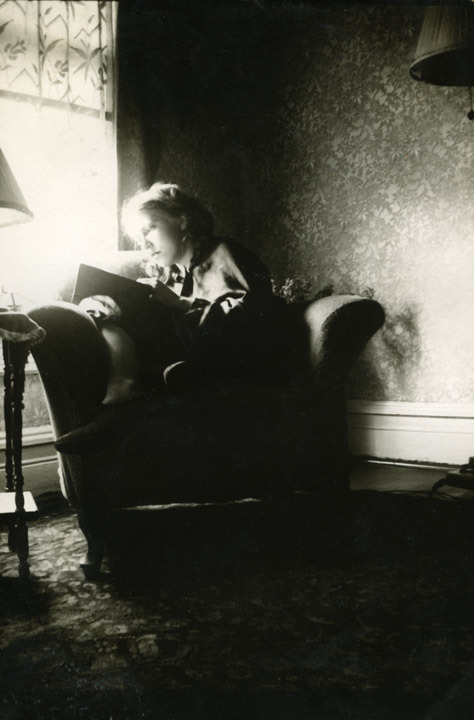
“No days, perhaps, of all our childhood are ever so fully lived are those that we had regarded as not being lived at all: days spent wholly with a favourite book.”
— Marcel Proust
... Do
you still hang your words in air, ten years
unfinished, glued to your notice boards, with gaps
or empties for the unimaginable phrase —
unerring Muse who makes the casual perfect?
You left North Haven, anchored in its rock,
afloat in mystic blue ... And now — you've left
for good. You can't derange, or re-arrange,
poems again. (But the sparrows can their song.)
The words won't change again. Sad friend, you cannot change.

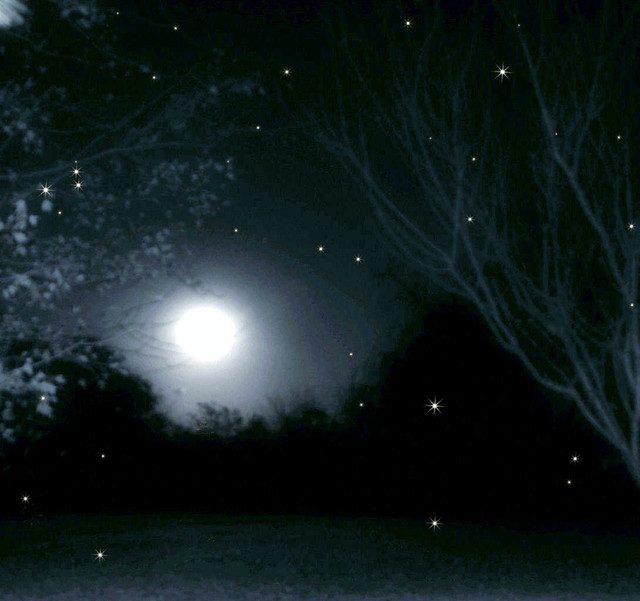 |
| Slowly the west reaches for clothes of new colors which it passes to a row of ancient trees. You look, and soon these two worlds both leave you one part climbs toward heaven, one sinks to earth. leaving you, not really belonging to either, not so hopelessly dark as that house that is silent, not so unswervingly given to the eternal as that thing that turns to a star each night and climbs- leaving you (it is impossible to untangle the threads) your own life, timid and standing high and growing, so that, sometimes blocked in, sometimes reaching out, one moment your life is a stone in you, and the next, a star.
Sunset, Rainer Maria Rilke |




“You carry away with you a reflection of me, a part of me. I dreamed you; I wished for your existence. You will always be a part of my life. If I love you, it must be because we shared, at some moment, the same imaginings, the same madness, the same stage.”
— | Anaïs Nin (via elysskama) |

Now that he is safely dead,
Let us Praise him.
Now that he is safely dead,
Let us Praise him.
Build monuments to his glory.
Sing Hosannas to his name.
Dead men make such convenient Heroes.
They cannot rise to challenge the images
We would fashion from their Lives.
(Hines 1987, 468).image; Banksy

“Wherever
his hand has lain there is
a tiny purple blemish. Each part
is a blossom under his touch
to which the fibres of her being
stem one by one, each to its end,
until the whole field is a
white desire, empty, a single stem,
a cluster, flower by flower,
a pious wish to whiteness gone over—
or nothing.”
— | Queen-Anne’s-Lace, William Carlos Williams (via sketchofthepast) |
Speech after long silence; it is right,
All other lovers being estranged or dead,
Unfriendly lamplight hid under its shade,
The curtains drawn upon unfriendly night,
That we descant and yet again descant
Upon the supreme theme of Art and Song:
Bodily decrepitude is wisdom; young
We loved each other and were ignorant.
 Mere forgetfulness cannot remove it
Mere forgetfulness cannot remove itDamiel;
It's great to live by the spirit, to testify day by day for eternity, only what's spiritual in people's minds. But sometimes I'm fed up with my spiritual existence. Instead of forever hovering above I'd like to feel a weight grow in me to end the infinity and to tie me to earth. I'd like, at each step, each gust of wind, to be able to say "Now." Now and now" and no longer "forever" and "for eternity." To sit at an empty place at a card table and be greeted, even by a nod. Every time we participated, it was a pretense. Wrestling with one, allowing a hip to be put out in pretense, catching a fish in pretense, in pretense sitting at tables, drinking and eating in pretense. Having lambs roasted and wine served in the tents out there in the desert, only in pretense. No, I don't have to beget a child or plant a tree but it would be rather nice coming home after a long day to feed the cat, like Philip Marlowe, to have a fever and blackended fingers from the newspaper, to be excited not only by the mind but, at last, by a meal, by the line of a neck by an ear. To lie! Through one's teeth. As you're walking, to feel your bones moving along. At last to guess, instead of always knowing. To be able to say "ah" and "oh" and "hey" instead of "yea" and "amen."
Catherine Hessling, La fille de l’eau, Jean Renoir, 1924.